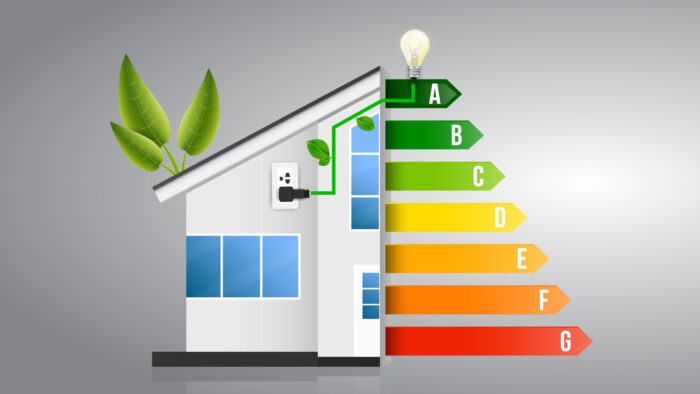
In today’s rapidly evolving business landscape, the quest for efficiency and cost savings is more critical than ever. One area that holds immense potential for cost reduction is energy consumption. As the world becomes increasingly aware of the environmental impact of energy consumption, and as energy costs continue to rise, businesses are finding themselves under pressure to not only enhance their bottom line but also contribute to a more sustainable future.
In this article, we will explore the significance of reducing energy costs for businesses and delve into actionable strategies that can be employed to achieve these goals.

The Rising Costs of Energy
Energy costs have been on an upward trajectory for several decades. Factors such as geopolitical tensions, supply chain disruptions, and the finite nature of fossil fuels have contributed to the steady increase in energy prices. Businesses, irrespective of their size or industry, are directly affected by these rising costs. High energy expenditures can erode profit margins, impede growth initiatives, and hinder competitiveness.
Consider a manufacturing company, for instance. Energy-intensive processes, such as heating, cooling, and running machinery, constitute a significant portion of its operational costs. For a retailer, energy costs are tied to lighting, HVAC systems, and refrigeration.
Even service-based businesses rely heavily on energy to power their offices, computers, and communication infrastructure. The inescapable reality is that energy is a fundamental input for nearly all aspects of modern business operations.
For a more detailed comparison on how much energy costs are rising, you can check out duke energy rates per kwh 2022.
The Environmental Imperative
Beyond the economic implications, the environmental impact of excessive energy consumption cannot be ignored. As concerns about climate change and environmental degradation intensify, consumers, investors, and regulators are increasingly demanding that businesses take proactive measures to reduce their carbon footprint. Embracing energy efficiency not only aligns with ethical and social responsibilities but also enhances a company’s reputation and brand image.
According to the U.S. Environmental Protection Agency (EPA), commercial and industrial activities are responsible for a significant portion of greenhouse gas emissions. By implementing energy-saving measures, businesses can play a pivotal role in reducing their contribution to global warming. This commitment to sustainability resonates with environmentally conscious consumers and can lead to increased customer loyalty and market share.

The Benefits of Energy Efficiency
- Cost Savings: The most apparent benefit of reducing energy costs is the immediate financial gain. By employing energy-efficient technologies and practices, businesses can experience substantial reductions in their utility bills. These savings can be reallocated towards other critical areas of operations, such as research and development, employee training, or expansion efforts. Visit Business Energy Comparison and save up to 45% on your business energy rates.
- Enhanced Competitiveness: In a competitive market, every advantage counts. Energy-efficient businesses can offer products and services at more competitive prices due to lower operating costs. This can help attract price-sensitive customers and improve a company’s market positioning.
- Operational Resilience: Energy-efficient systems are often more reliable and less prone to breakdowns. This can lead to reduced downtime, increased productivity, and a more seamless workflow. For example, a data center that implements energy-efficient cooling solutions is less likely to experience overheating and equipment failures.
- Regulatory Compliance: Many jurisdictions are enacting stricter energy efficiency regulations to mitigate environmental impact. Businesses that proactively implement energy-saving measures will be better positioned to comply with these regulations, avoiding potential penalties and reputational damage.
- Innovation and Adaptability: Embracing energy efficiency encourages a culture of innovation and adaptability within an organization. It prompts employees to seek out creative solutions and explore new technologies, fostering a dynamic and forward-thinking work environment.
- Employee Engagement: Employees are increasingly drawn to companies with a strong commitment to sustainability and environmental stewardship. Demonstrating a dedication to reducing energy costs can enhance employee morale and attract top talent, contributing to a more motivated and engaged workforce.

Strategies for Reducing Energy Costs
- Energy Audits: Conducting regular energy audits is a foundational step towards identifying areas of inefficiency. Audits involve analyzing energy consumption patterns, identifying wastage, and recommending tailored solutions. These audits can reveal opportunities for quick wins, such as upgrading lighting systems, optimizing HVAC settings, or sealing leaks in buildings.
- Energy-Efficient Equipment: Investing in energy-efficient appliances and machinery can yield substantial long-term savings. Energy Star-rated equipment, for instance, can consume significantly less energy while delivering the same level of performance.
- Smart Building Technologies: Leveraging smart building technologies allows for real-time monitoring and control of energy consumption. Automated systems can adjust lighting, heating, and cooling based on occupancy, time of day, and other factors, minimizing unnecessary energy use.
- Renewable Energy Sources: Transitioning to renewable energy sources, such as solar panels or wind turbines, can provide businesses with a reliable and sustainable energy supply. While the initial investment may be substantial, the long-term benefits in terms of reduced energy costs and positive environmental impact are substantial.
- Employee Awareness and Training: Engaging employees in energy-saving practices can have a remarkable impact. Training programs can educate staff on simple yet effective measures, such as turning off lights and equipment when not in use, using energy-efficient settings on computers, and adopting responsible printing habits.
- Energy Management Software: Specialized software tools can help monitor and analyze energy consumption data, providing insights into usage patterns and opportunities for optimization. These platforms enable businesses to make data-driven decisions to further reduce energy costs.
- Green Building Design: If constructing a new facility or renovating an existing one, incorporating green building design principles can yield significant energy savings. Elements such as efficient insulation, passive heating and cooling, and natural lighting can dramatically reduce energy demands.
- Supplier Engagement: Businesses can influence their supply chain partners to adopt energy-efficient practices. Partnering with suppliers who share a commitment to sustainability can create a ripple effect throughout the entire value chain.
- Government Incentives: Many governments offer incentives, tax breaks, and grants to businesses that implement energy-saving measures. Taking advantage of these programs can offset the initial costs of adopting energy-efficient technologies.
- Continuous Improvement: Energy efficiency is an ongoing endeavor. Regularly reassessing and fine-tuning energy-saving initiatives ensures that businesses continue to reap the benefits of reduced energy costs over time.

Conclusion:
In an era defined by economic uncertainty, environmental consciousness, and technological innovation, reducing energy costs has become a paramount goal for businesses worldwide. The financial advantages of energy efficiency, coupled with the potential for enhanced competitiveness, environmental stewardship, and regulatory compliance, make it imperative for businesses to prioritize energy-saving measures.
By embracing a multifaceted approach that includes energy audits, investment in energy-efficient technologies, employee engagement, and a commitment to continuous improvement, businesses can achieve substantial and sustainable reductions in energy costs. As exemplified by companies like Walmart, the journey towards energy efficiency not only benefits the bottom line but also contributes to a brighter and more sustainable future for both businesses and the planet as a whole.











